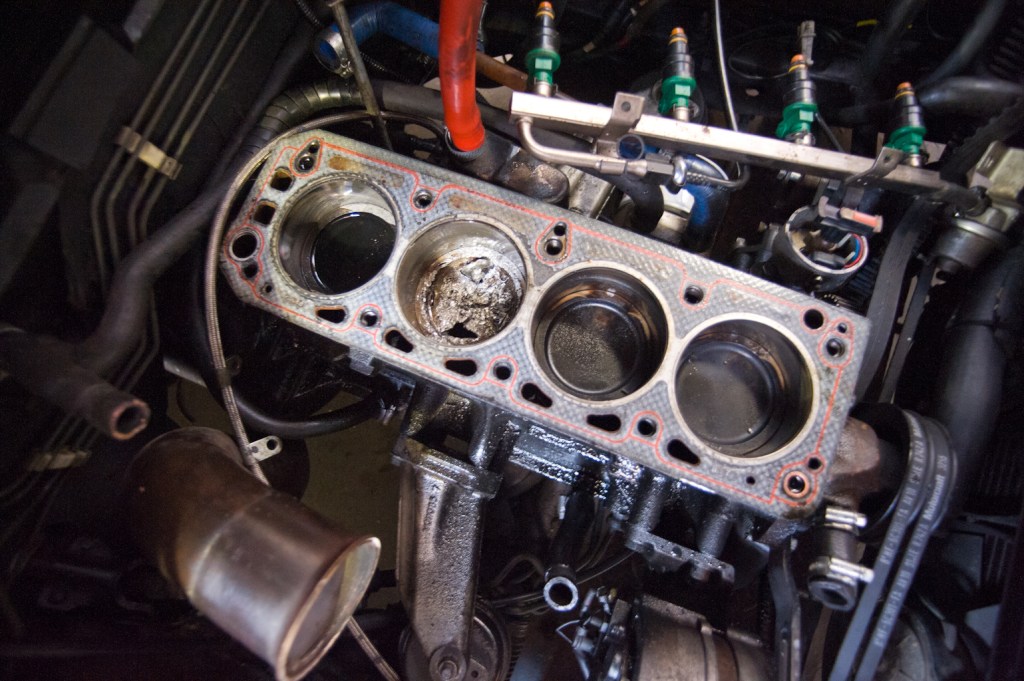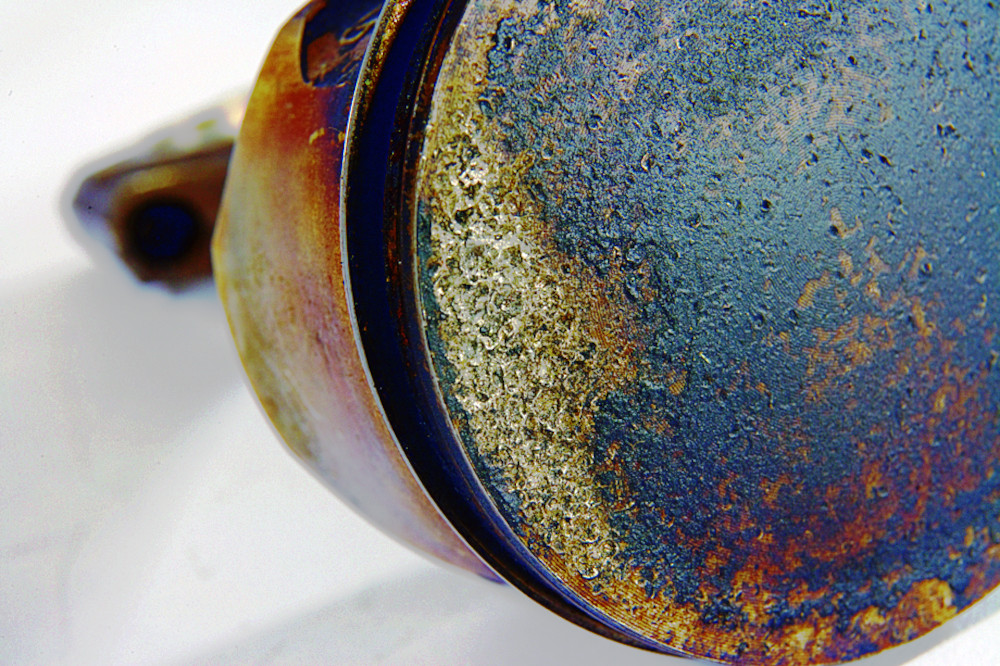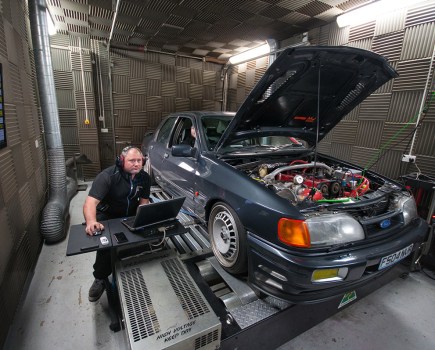Nothing causes engine failures more than an incorrect air fuel ratio (AFR). We show you why it happens and how to prevent it.
Talking about air fuel ratios isn’t the sexiest subject in car tuning. But it’s one of the most important! Put simply, it can be the difference between life and death for your engine.
But there’s no one-size-fits-all solution. What’s scientifically best? Which is best for fuel economy? Is there a best air fuel ratio for power? And finally, what’s best for your engine’s lifespan? All four scenarios are very different, and require different AFRs.
To complicate things further, they vary from engine to engine. Even the type of fuel used will affect the ideal air fuel ratio. The reality is you don’t need to be an expert, that’s the job of your tuner. But understanding the basics of air fuel ratios and acting earlier when something isn’t quite right could save your engine – and your wallet from an expensive repair bill!

Poor AFRs kill parts
When parts break on your modified car, we often say they aren’t strong enough. But in reality, component parts and gaskets or seals rarely fail because they are weak. Instead, less-than-ideal AFRs are often the main culprit. Ever melted a piston? It’s not because the aluminium was too weak but because poor air fuel ratios have led to detonation and pre-ignition. Had a head gasket fail straight after tuning? It was working fine before, but again increased cylinder pressures and temperatures caused it to fail.
Don’t fall into the trap of thinking, “Oh I’ve blown a head gasket. I’ll get a stronger one to stop it from happening again.” Often, reliability issues continue because the root cause of the problem is detonation rather than weak or faulty components. Most cars can take around double the standard power on the original engine internals (some can do more like the famous 2JZ engine, and some can fail at stock power levels like the Mk3 Focus RS). But for any engine to last, the air fuel ratio must be correct. That is why ECU remapping is so crucial to get right.
Why can bad air fuel ratio kill my engine?
One word, detonation. Detonation is where the air and fuel mixture ignites on its own – without the aid of the spark plug. This happens when lean mixtures increase combustion chamber temperatures and pressures to a level that causes the fuel to spontaneously combust.
While in mild form this is fairly harmless, the severe detonation common when tuning cars is highly destructive. Detonation causes enormous cylinder pressures, far in excess of even what the highest boost pressures could give without detonation. This, at the very least, causes your head gasket to blow, melts your pistons, and ends your engine’s life.
This catastrophic failure can happen very quickly. Which is why head gaskets are often designed to be the weakest point in an engine. It’s a lot cheaper to fix the head gasket than it is to carry out a full bottom end rebuild!

What does lean or rich mean with air fuel ratio?
When someone says that a car is running lean or rich, this relates directly to the air fuel ratio. The ideal ratio is generally around 14.7:1. That’s 14.7 parts air for every 1 part of fuel. This the amount of air required for the complete combustion of the fuel, known as the stoichiometric mixture or Lambda 1.0. Anything that has more air (or less fuel) than this is considered lean, or a Lambda of greater than 1.0. While a ratio than has less air (or more fuel) is classed as a rich AFR or Lambda of less than 1.0.
Lean AFRs
If the air-fuel ratio is too high, it means there is excess air and not enough fuel. This is known as a lean mixture. In this case, the combustion process may not consume all the oxygen present, leading to higher combustion temperatures. This can result in engine damage due to overheating, misfires, and it can lead to detonation (or knock).
Rich AFRs
Conversely, if the air-fuel ratio is too low, it means there is excess fuel and not enough air. This is known as a rich mixture. In this scenario, not all the fuel is burned during combustion, leading to a waste of fuel and lower engine efficiency. The unburned fuel can also cause bore wash and oil dilution, or damage exhaust components such as catalytic converter. It’s also the reason you’ll fail the emissions test come MoT time.
Learn More About Air Fuel Ratios
To find out how engine tuning affects AFRs, read our feature on Tuning your Air Fuel Ratio for Maximum Power








